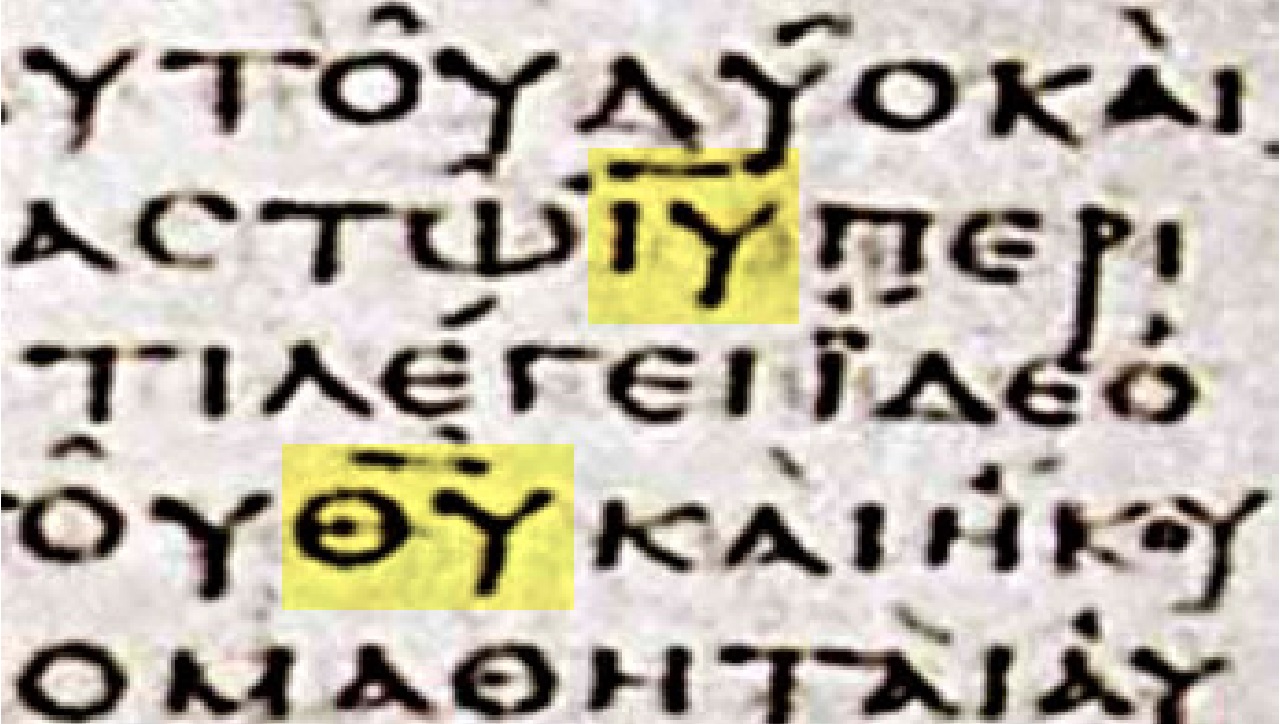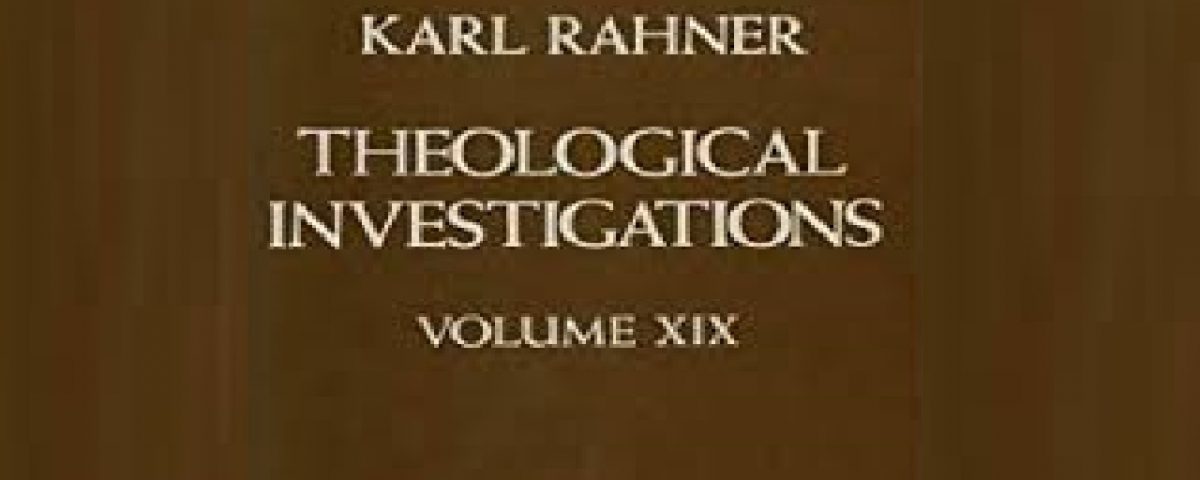
The Key Common Denominator of John 12:41; 17:5
February 2, 2019
Jesus is God “proof texts”
February 22, 2019Theos in the New Testament

by Karl Rahner
By theos the Greeks did not mean the unity of a definite personality in the monotheistic sense, but rather the unity of the religious world, clearly felt as one in spite of its multiplicity of forms. The Greek conception of God is essentially polytheistic, not indeed in the sense of many isolated gods but as an ordered totality of gods, such as appears in Homer’s divine polity, for instance, where the gods are ranged in order, one above the other.
The basic form of Old Testament monotheism is not, ‘One God exists’ (there is a single primary cause of the world); but ‘Yahweh is the unique God’….The heart of Old Testament monotheism is found in the fact that Yahweh, i.e. the definite Person with a proper name….that this Yahweh is wholly Spirit and Person, on whose free ‘creation’ absolutely everything depends.
This Lord (because of the original starting point of his People’s knowledge of him) is not dissolved in the empty indistinctness of an impalpable metaphysical concept but remains in his absolute transcendence of all earthly things concretely and unambiguously He, just as He wished in his sovereign freedom to show himself, in the course of the unique history of his covenant with this People.
When Jesus was asked which was the first of all the commandments and answered that it was the commandment of love—and this is the heart of the Pauline and Johannine message too (Rom 13:10; 1 Cor 8:3; ch. 13; Col. 3:14; 1 Jn 3:11)—he himself in this critical context (Mk 12:29) cited the Shema….The Scribe can only confirm Jesus’ profession of the faith of his People, once more in the words of the Old Testament (Deut 6:4; 4:35).
This confession of the one God runs through the entire New Testament. In Jesus’ own words, eternal life is that they should know the only true God (Jn 17:3) and be mindful of the glory which is from this one God alone (Jn 5:44; 1 Cor 8:4). Thus testimony to the uniqueness of the sole God is constantly recurring: eis o theos (Rom 3:30; 1 Cor 8:6; Gal 3:20; Eph 4:6; 1 Tim 2:5; Jas 2:19), monos theos (Rom 16:27; 1 Tim 1 :17; 6: 15; Jude 25 ; Apoc 15 .4).
Now this monotheism is not just a fragment of tradition taken over from the Old Testament, although it is in fact usually expressed in the old traditional formulas. It is bound up with the basic Christian confession; and when Christ wanted to state as briefly as possible what that eternal life was which he offered men, he spoke of the knowledge of the one true God (Jn 17:3).
And so the formula for New Testament monotheism does not run, There exists one God, somewhat in the sense of the Enlightenment, We all believe in one God; but on the contrary, He who has actively manifested himself in Christ and in the pneumatic reality of salvation which has come into being with Christ, that is the unique God. And here too it is distinguished from Old Testament monotheism: the Father of our Lord Jesus Christ is the unique God, and just this is the denial of Judaism.
Because the one God (o theos) whom the men of the New Testament confess is the living Person who was at work in the saving history of the Old Testament and definitively revealed himself in his Son, the men of the New Testament like to go on using the old expressions ‘God of the fathers‘ (Ac 3:13; 5:30; 22:14), ‘God of Israel‘ (Mt 15:31; Lk 1:68; Ac 13:17; 2 Cor 6:16; Heb 11:16), ‘God of Abraham, Isaac and Jacob‘ (Mk 12:26; Lk 20:37; Ac 3:13; 7:32; Mt 22:32), and speak in the manner of the Old Testament about ‘our‘ God (Mk 12:29; Lk 1:78; Ac 2:39; 3:22; 1 Cor 6:11; 1 Thess 2:2; 3:9; 2 Thess 1:11-12; 1 Tim 1:1; Heb 12:29; 2 Pet 1:1; Apoc 4: 11 ; 5 : 10; 7:3; 12: 10; 19:1.5) or quite personally of ‘my‘ God (Lk 1 .-47; Rom 1:8: 2 Cor 12:21; Phil 1:3; 4: 19; Phm 4; Apoc 3:12—4 times); on the other hand they speak also of the God and Father of our Lord Jesus Christ (Rom 15:6; 2 Cor 1:3; 11:31; Eph 1:3) or again more briefly of the God of our Lord Jesus Christ (Eph 1:17).
This concrete God is the unique God intended when monotheism is professed.
Is it the case that in the New Testament o theos only stands often for the Father and stands much more frequently for the threefold God in general, in that o theos signifies simply God’s concretely existing and subsisting nature?
Or is it the case that in the New Testament o theos always signifies the Father and does not merely stand for him often?
We maintain that in the New Testament o theos signifies the First Person of the Trinity, and does not merely stand for him often; and this applies to every case in which another meaning of o theos does not become clearly evident from the context. These few exceptions in no way support the opinion that o theos merely stands for the Father without actually signifying him.

